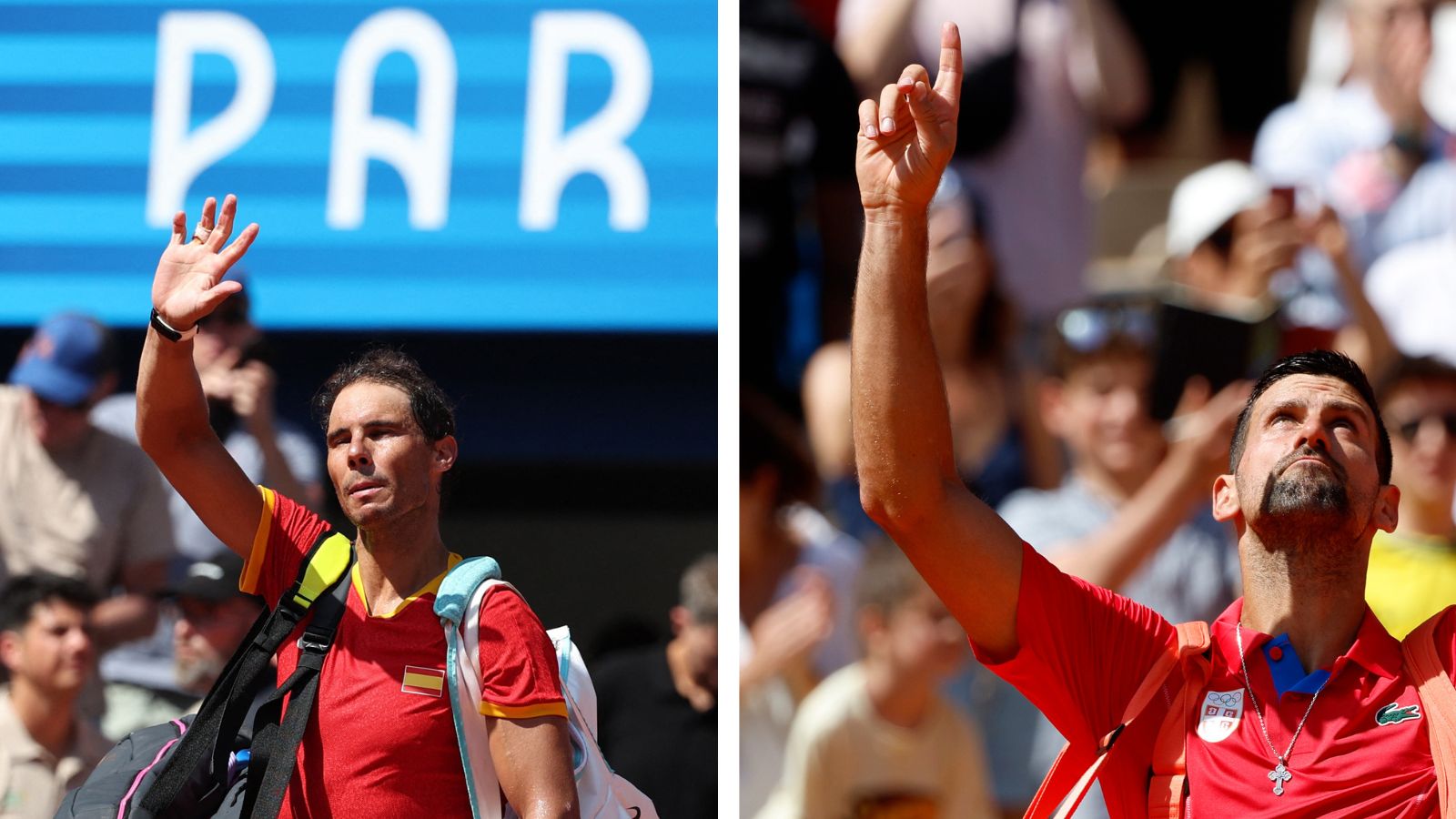Before droning into what seems to be an epilogue to this 60-chapter-long epic rivalry between Rafael Nadal and Novak Djokovic, an acknowledgement is due.
For much of its modern history, tennis has thrived on its key rivalries – personal contests that determine high-stakes outcomes. Evert-Navratilova, Borg-McEnroe, Federer-Nadal.
Without the same kind of universal adoration and resonance though, the pre-eminent rivalry of this generation, and perhaps Open Era men’s tennis at large, is the one between Nadal and Djokovic. Across 60 evenly-contested meetings through 18 years, none have shared this sustained level of greatness throughout a period so long, and left an imprint on the game so large.
At their very best, in tandem, they produced the greatest tennis of the past decade. Side-to-side lunges and slides to dwarf court positions and hit winners on the run. Effortless movement to turn defence into offence. Crafty point creation. Impenetrable defence. Baseline aggression. Variety and guile.
Their latest, and perceivably final, contest on Monday at Roland Garros – a one-off uncharacteristic second-round tie during the ongoing Paris Olympics – would witness none of that.
Over a little over an hour and a half, Djokovic, not in especially good form or the greatest of fitness, pummelled Nadal, dispatching him 6-1, 6-4, making it seem every bit like the World No. 2 taking on the World No. 161. Nadal was so far off the pace, his presence so meagre, that he seemed like the ghost of the once ever-dominant force that used to patrol these courts.
As he was being thoroughly outplayed, Nadal’s recovery down double break in the second set handed him the mercy of a respectable scoreline and a more watchable spectacle. It was still, from first point to last, one-way traffic.
The Spaniard has spent the previous 18 months stuck in injury-ridden limbo, planning out an extended farewell tour that has started and stopped as he has raged against the limitation of his beaten body and lack of match sharpness. Non-committal about his future, he has flirted with the idea of returning next year for another crack at the French Open.

However, if Monday’s beatdown will do anything, it is likely to provide a sobering reality to one the sport’s giants. The distant between his level and that of the top rung of the tour has never felt farther.
Credit where it must be due to Djokovic, motivated for this game against his great rival, he was striking the ball pure and playing with a consistent intensity that most players on tour would find hard to keep up with.
But Nadal failed to be anything resembling a resilient presence, off the pace in movement, not finding the same revs on his famous forehand, unable to serve with any gusto. Strategy and spirit alone could only will him on so much. Muscle memory could only go so far.
The encounter opened with promise, two high-octane games as the two opponents felt each other out before Djokovic was given an easy breakthrough, which he took, and went into cruise control thereafter. Every point felt like a bonus for his opponent, Djokovic stretching him to all corners of the court and blowing him away.
Within less than an hour, he fashioned a 6-1, 4-0 lead. But this is still Court Phillippe Chatrier – Rafa’s house. Djokovic may have moved in temporarily in some year and it may be leased to his 17-years-younger compatriot, Carlos Alcaraz, presently, but in spirit, this will always be Nadal’s domain. He has not won 14 French Opens for nothing.
So from there, Nadal willed himself on, with the backdrop of his adoring Parisian public, and took advantage of a few inopportune errors from Djokovic to stage a mini-recovery. Some impressive strokes, volleys, high wind forehands, ensued. He smartly put Djokovic to the test by returning second serves more aggressively and moving him out of his comfort zone on the baseline.
But the turning tide did not last long. Serving at 4-4, with a freight-ton of momentum behind him, he slumped. Djokovic stayed solid, returned well, fashioned a handful of chances and took them before serving out the win.
This anti-climactic chapter, probably its last, should not sully this great rivalry. Djokovic now edges the head-to-head 31-29. He may have been excused for arriving a bit undercooked here, mere weeks on from knee surgery and suffering a humbling from Alcaraz at Wimbledon earlier this month himself. But he looked motivated from the get-go and produced a level of tennis that, if he can sustain, may put him on track for the Olympic gold – the one elusive achievement in his resume – later this week.
Nadal will not leave Paris yet. He remains in medal contention in the doubles category alongside Alcaraz in a much-hyped, much-loved partnership. But if an appraisal must be made of what the future holds for him as a top tennis player after Monday’s defeat, the outlook remains grim.



